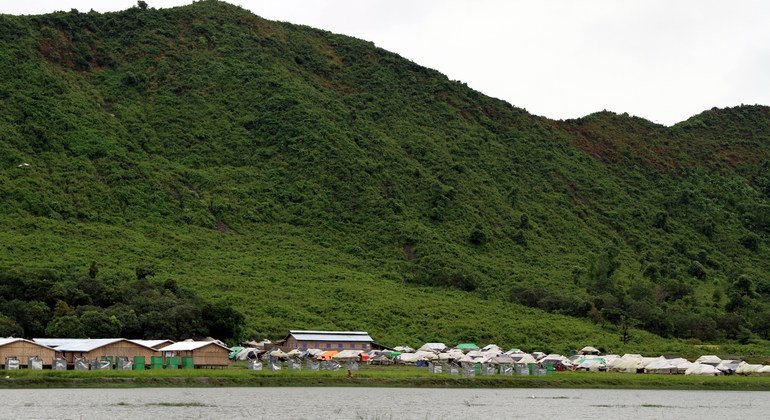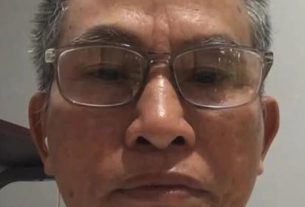Since the February 2021 coup, over 5,000 civilians have been killed, at least three million displaced. More than 20,000 political prisoners remain incarcerated. Military airstrikes against civilian targets have increased five-fold in the last six months, even as the junta loses military outposts, territory, and troops to resistance forces.
Potential enablers
In a new report, Tom Andrews, UN Special Rapporteur on Myanmar, identified 16 banks in seven countries that processed transactions linked to the junta’s military procurement over the past two years.
Additionally, 25 banks provided correspondent banking services to Myanmar’s state-owned banks under junta control.
“With the junta on its heels, it is critical that financial institutions take their human rights obligations seriously and not facilitate the junta’s deadly transactions,” he said.
He highlighted that banks involved with Myanmar State-owned banks are at high risk of enabling military attacks on civilians and emphasized their fundamental obligation to avoid facilitating crimes, including war crimes and crimes against humanity.
Tom Andrews, Special Rapporteur on the situation of human rights in Myanmar
Good and bad news
He noted a decline in the Myanmar military’s annual procurement of weapons and military supplies through the formal banking system, from $377 million to $253 million in the year ending March 2023.
However, he warned that the junta circumvents sanctions by exploiting gaps, shifting financial institutions, and leveraging inadequate coordination and enforcement among member states.
“The good news is that the junta is increasingly isolated … the bad news is that the junta is circumventing sanctions and other measures by exploiting gaps in sanctions regimes, shifting financial institutions, and taking advantage of the failure of Member States to fully coordinate and enforce actions,” the Special Rapporteur said.
Shift from Singapore to Thailand
The report Banking on the Death Trade: How Banks and Governments Enable the military Junta in Myanmar examined “a dramatic shift” in the role of two Association of Southeast Asian Nations (ASEAN) countries as sources of weapons and military supplies.
Following last year’s identification of Singapore as a significant source, the Singaporean government investigated the entities involved, resulting in a 90 per cent drop in weapons flowing to Myanmar from Singapore-registered companies.
Conversely, military procurement through Thailand has moved in the opposite direction, the news release noted.
The junta imported nearly $130 million in weapons and military supplies from Thailand-registered suppliers in the year ending March 2024 – more than double the total from the previous year.
Thai banks have played a crucial role in this shift. The Siam Commercial Bank, for instance, facilitated just over $5 million in transactions related to Myanmar military in the year ending March 2023, but that number rose sharply to over $100 million the following year.
Political will needed
“Singapore’s example demonstrates that a Government with sufficient political will can make a significant difference toward shutting down the Myanmar death trade,” Mr. Andrews stressed.
“Thailand has an opportunity to follow this powerful example by taking action that will deal a huge blow to the junta’s capacity to sustain its escalating attacks on civilian targets. I urge it to do so,” he concluded.
Appointed by the Geneva-based UN Human Rights Council, and forming of a part of its Special Procedures, Special Rapporteurs are mandated to monitor and assess the rights situation in certain thematic or country situations.
They work voluntarily, are not UN staff and do not receive a salary.

A rural road in Myanmar. (file photo)
UN food warehouse looted
Amidst the ongoing conflict, a warehouse of the UN emergency food relief agency was looted and set on fire in Maungdaw, northern Rakhine province last Saturday.
It was holding 1,175 metric tons of life-saving food and supplies, enough emergency food to sustain 64,000 people for one month. However, due to increased conflict in the region, its staff have not been able to access the warehouse since late May.
The UN World Food Programme (WFP) strongly condemned the incident, stressing that the seizure of humanitarian goods and destruction of facilities undermined its food support programme to conflict-affected populations in Myanmar.
It called on all parties to the conflict to uphold their obligations under international humanitarian law to respect and protect aid facilities and assets and ensure humanitarians have unfettered access.
WFP is gathering details of the circumstances surrounding the incident, the agency said.



